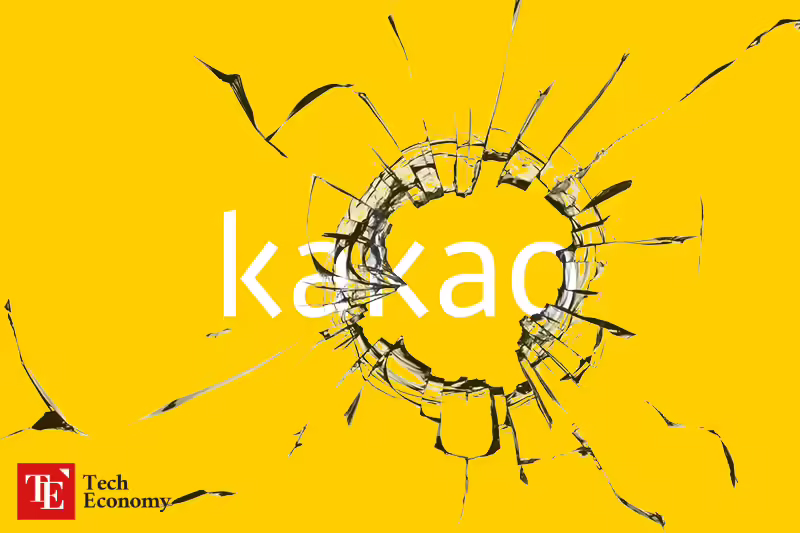Kakao Waves the White Flag: Reinstates Friends List After User Backlash, Retreats on Super-App Ambitions
Input
Modified
User Revolt Over Instagram-Style Feed After Update Kakao: “Users Will Be Allowed to Choose Their Preferred Format” Incomplete Integration of Banking Super-Apps Creates User Inconvenience

KakaoTalk’s sweeping overhaul has triggered a wave of user discontent, forcing Kakao to roll back one of its most controversial changes. The company announced it would reinstate the traditional “friends list” tab, replacing the Instagram-like feed format introduced in a recent update. Designed to boost user engagement and session time, the shift undermined KakaoTalk’s core identity as a messenger, provoking strong resistance. Analysts warn that ill-defined, scattershot super-app strategies may ultimately hinder, rather than accelerate, platform growth.
Kakao Promises Restoration by Year-End
On September 29, Kakao pledged to incorporate user feedback into its latest version of KakaoTalk, confirming that the friends tab will return to its original format by the fourth quarter. While the grid-style feed will remain available under a separate “News” section, the first screen will revert to the familiar list. “We will provide users with the option to choose between the classic list and the grid-style feed,” Kakao stated. The concession follows intense backlash since the update’s unveiling at the “if(kakao)” developer conference on September 23.
Users lambasted the new layout for eroding KakaoTalk’s identity and inflating fatigue associated with social media. Online forums were inundated with criticism of Chief Product Officer Hong Mintak, who spearheaded the redesign, while app stores saw a deluge of one-star reviews demanding a rollback. Instructions on disabling automatic updates quickly circulated online as users sought to avoid the revamp.
Industry observers describe the uproar as emblematic of how carefully any changes must be managed for a platform with 50 million monthly active users. Kakao’s original vision was to evolve KakaoTalk into a super-app, transforming the friends list into a real-time content feed to enable both communication and consumption. But the company’s attempt to balance innovation with user familiarity has backfired, forcing a retreat to its messenger roots.
Super-App Blueprint Amid Slowing Growth
Kakao, a leading domestic platform player, first began exploring the possibility of a super-app in 2022. At the time, profitability of its core businesses—Talk Biz (KakaoTalk) and Portal Biz (Daum)—was deteriorating, prompting growing doubts about growth prospects. In 2022, Portal Biz revenue plunged 25% year-on-year, while Talk Biz, which had driven results with double-digit growth rates since 2018, slowed to 9%, signaling a clear deceleration.
Analysts attributed the slowdown to excessive decentralization. Kakao had expanded aggressively under a Company-in-Company (CIC) model, spawning businesses across entertainment, mobility, finance, and gaming, with affiliates swelling to 147 at one point. This fragmentation made organic integration and functional unification difficult. As spun-off entities raised external funding independently, shareholder structures became splintered, further hindering efficient decision-making.
In response, Kakao under CEO Shin Junga launched sweeping restructuring in 2023, divesting more than 30 affiliates over two years to secure financial stability, while slimming operations by spinning off the Daum portal. The company concentrated on strengthening KakaoTalk as its core platform, channeling resources into artificial intelligence.
Against this backdrop, Kakao in June this year announced plans to upgrade KakaoTalk into a super-app and bolster AI-based services. The company said it would integrate ChatGPT into KakaoTalk and deploy its proprietary AI model “Kanana.” It also set a goal to increase user session time by more than 20% within the year. However, the backlash to the latest update demonstrates the risks of overlooking user sentiment. Experts argue that with users already fatigued by social media, Kakao should have prioritized identifying the features users truly wanted in a messenger, rather than focusing on imitation and feature expansion.

Superficial integration reduces user focus
The missteps in Kakao’s super-app transition echo problems seen in the financial sector. Following regulatory easing in 2022, major financial groups raced to launch super-apps, integrating nonbank affiliates such as securities, insurance, and cards into mobile banking, while adding services ranging from shopping and travel to healthcare and telecommunications. The ultimate goal was to create a “digital universal bank.” Strategies varied: KB Financial Group incorporated six core services including payments and insurance, alongside real estate, auto, and healthcare content, while Shinhan Financial Group launched a new platform encompassing five key affiliates.
Yet expectations of a “true super-app” have gone largely unmet. The biggest complaint is that users cannot delete their existing apps even when using the super-app. For example, Shinhan’s integrated platform “Super SOL” includes only some functions of its bank, card, securities, life, and savings affiliates, often forcing users to switch back to separate apps. What banks envisioned as a consumer lock-in effect has instead produced user frustration, with consumers often left juggling two or three apps simultaneously.
Industry insiders note that such ambiguous integration strategies weaken network effects. Without a clearly defined identity, simply combining services in parallel inevitably leads to a trade-off in user focus. By contrast, successful financial super-apps have pursued a different path. Toss, widely regarded as the most advanced, concentrated on account aggregation, credit checks, investing, and insurance. KakaoBank dominated with its seamless transfer function, while Naver Pay leveraged shopping-linked payments to secure a leading position. These examples underscore that success depends not on indiscriminate bundling, but on strategic focus and user-centered design.






















Comment